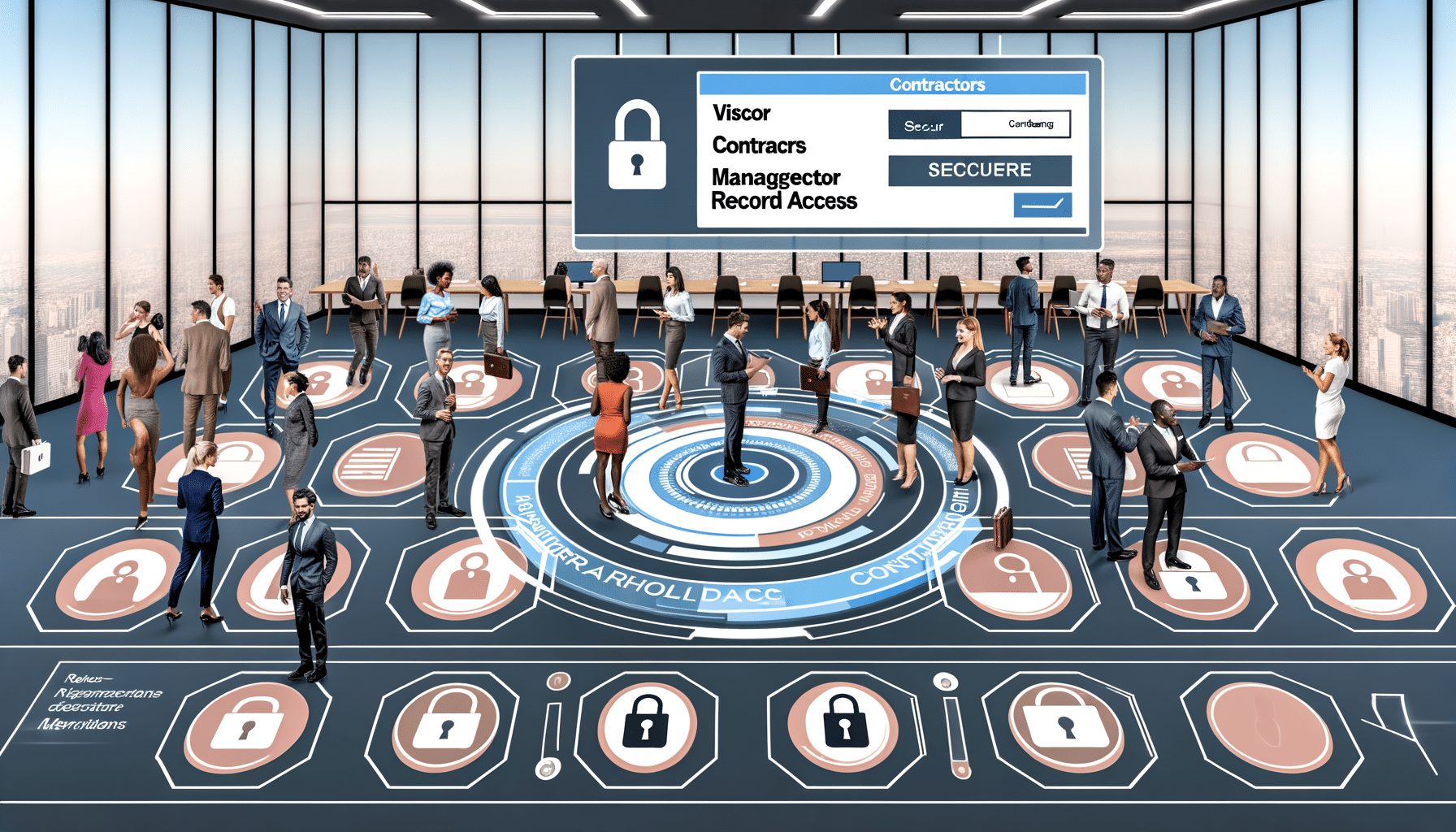- Archive Security
- November 16, 2024
Blockchain-Based Identity Management in Record Keeping

Redefining Identity Management in Record Keeping with Blockchain
The conventional world of record keeping is rapidly evolving, and one of the pivotal drivers behind this transformation is the implementation of blockchain technology. As someone deeply immersed in the world of cutting-edge tech, I’ve had the privilege to witness firsthand how blockchain is revolutionizing identity management and enhancing security measures in record keeping.
The Case for a New Approach to Identity Management
As organizations grapple with the dual challenges of data breaches and fraudulent activities, traditional identity management systems, characterized by centralized databases, present significant vulnerabilities. As a response, businesses are keenly exploring decentralized systems where blockchain stands out as a compelling alternative. Blockchain’s decentralized ledger not only ensures an immutable record but dramatically boosts security, allowing for unparalleled transparency and data integrity.
Understanding Blockchain-Based Identity Management
At its core, blockchain-based identity management harnesses a distributed network of nodes to validate identities in a transparent and secure manner. Each identity transaction on the blockchain is encrypted and interconnected using cryptographic algorithms, making unauthorized alterations practically impossible. This attribute of immutability is crucial, particularly for industries where compliance and accountability are non-negotiable.
Security Advantages of Blockchain Identity Systems
The advantages of utilizing blockchain for identity management manifest in numerous ways, including:
- Enhanced Security: Decentralization ensures there’s no single point of failure, greatly reducing the risk of large-scale breaches.
- Data Privacy: Users have sovereign control over their data, sharing personal information only when necessary and under provided consent frameworks.
- Authenticity: Transactions must be verified by the network, thus verifying the identity and authenticity before any change is authorized.
Real-World Applications: Blockchain-Enabled Identity Management Systems
Several industries have already begun leveraging blockchain in transforming their identity management processes.
- Healthcare: Patient data, once verified and stored on the blockchain, reduces errors and provides physicians with comprehensive yet secure access to medical records.
- Finance: Blockchain permits the creation of verifiable KYC (Know Your Customer) data, expediting financial transactions via real-time verification.
- Government Services: By employing blockchain, governments can secure critical documents such as birth certificates or land registries, ensuring both transparency and traceability.
Overcoming Challenges
The transition to blockchain-based systems is not seamless; it introduces several technical and organizational challenges such as:
- The need for substantial upfront investment in infrastructure, which could be a barrier for smaller organizations.
- Integration with existing systems, necessitating the redesign of administrative processes.
- Addressing the scalability of blockchain as the database grows exponentially with each transaction.
Despite these challenges, the potential return on investment—evidenced by reduced fraud, enhanced security, and compliance ease—makes blockchain adoption a strategic priority.
Looking Forward: The Strategic Advantage
Integrating blockchain into identity management extends beyond mere security upgrades—it represents a strategic shift toward fostering trust and legitimacy across digital transactions. For businesses and governments, this move is a bold declaration of responsibility towards safeguarding identities in the digital era.
Overall, blockchain stands to transcend traditional identity management paradigms by providing secure, transparent, and efficient solutions that are resilient to unauthorized data tampering. Organizations that seize the opportunity to innovate in this space will not only enhance their operational security but will also establish themselves as forward-thinking leaders in a rapidly digitizing world.
Conclusion
The age of trustless, decentralized identity management driven by blockchain technology is on the horizon. At RecordsKeeper.AI, we are leveraging this transformative potential to innovate solutions that empower both businesses and individuals, ensuring that identity integrity is not just a promise, but a deliverable. I invite you to explore how blockchain can underpin your organizational goals and elevate your record-keeping processes. Embrace the change—consider the possibilities with blockchain-enhanced identity management, and let’s protect identities together.
Toshendra Sharma is the visionary founder and CEO of RecordsKeeper.AI, spearheading the fusion of AI and blockchain to redefine enterprise record management. With a groundbreaking approach to solving complex business challenges, Toshendra combines deep expertise in blockchain and artificial intelligence with an acute understanding of enterprise compliance and security needs.
Related Posts


Handling Sensitive Records in Open Offices
Maintaining confidentiality in open workspace layouts.
- December 9, 2024
Archives
- January 2025
- December 2024
- November 2024
- October 2024
- September 2024
- August 2024
- July 2024
- June 2024
- May 2024
- April 2024
- March 2024
- February 2024
- January 2024
- December 2023
- November 2023
- October 2023
- September 2023
- August 2023
- July 2023
- June 2023
- May 2023
- April 2023
- March 2023
- February 2023
- January 2023
- December 2022
- November 2022
- October 2022
- September 2022
Want to get more content like this?
Signup to directly get this type of content to your inbox!!
Latest Post
Document Control for Equipment Maintenance
- January 20, 2025
Managing Records for Multiple Clients
- January 19, 2025
Handling Conference Documentation
- January 18, 2025
Setting Up Department Record Reviews
- January 17, 2025





